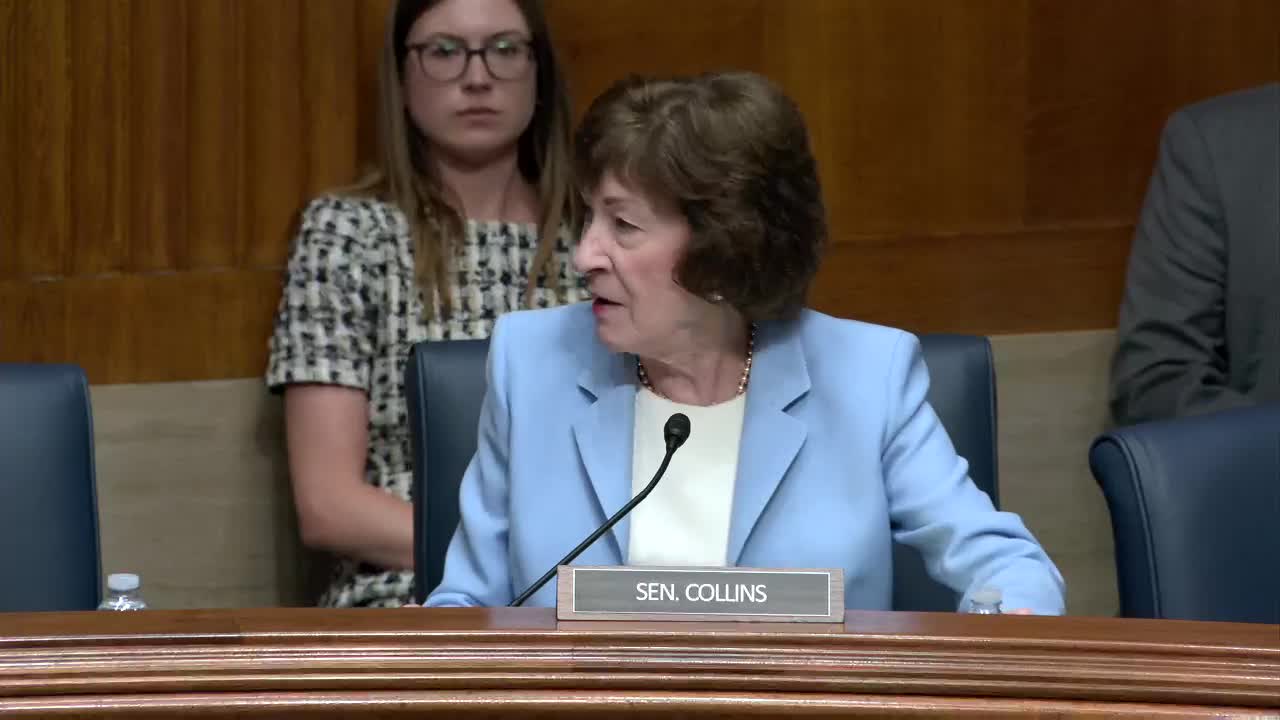Senators Authorize Reauthorization of Kaye Hagen Tick Act to Combat Lyme Disease
July 30, 2025 | Health, Education, Labor, and Pensions: Senate Committee, Standing Committees - House & Senate, Congressional Hearings Compilation
This article was created by AI summarizing key points discussed. AI makes mistakes, so for full details and context, please refer to the video of the full meeting. Please report any errors so we can fix them. Report an error »

In a recent meeting of the U.S. Senate Committee on Health, Education, Labor, and Pensions, significant discussions centered around the reauthorization of the Kaye Hagen Tick Reauthorization Act, also known as S. 2389. This legislation aims to enhance federal efforts in combating the rising incidence of Lyme disease and other tick-borne illnesses, which have seen alarming increases over the past two decades.
Senator who authored the original Tick Act in 2019, expressed gratitude for the inclusion of this bill in the markup agenda. The act is named in honor of former Senator Kaye Hagen, who tragically passed away from complications related to a tick-borne disease. The senator highlighted the urgent need for reauthorization, citing a record 3,218 reported cases of Lyme disease in Maine last year—more than double the cases reported just five years prior. This alarming trend underscores the necessity for continued federal support and funding.
The Tick Act employs a comprehensive three-pronged strategy to address the challenges posed by tick-borne diseases. This includes implementing the Department of Health and Human Services' national strategy to combat vector-borne diseases, reauthorizing funding for the Centers for Disease Control and Prevention's centers of excellence in this field, and providing grants to state and local health departments to strengthen public health infrastructure.
In addition to the Tick Act, Senator Marshall announced a significant breakthrough in medical testing that differentiates between long COVID and long-term effects of tick-borne diseases. This development could greatly enhance diagnosis and treatment options for affected individuals.
The committee's discussions reflect a bipartisan commitment to addressing public health challenges posed by vector-borne diseases. As the reauthorization moves forward, it is anticipated that these legislative efforts will lead to improved health outcomes and further advancements in research, including ongoing clinical trials for a Lyme disease vaccine.
Overall, the meeting underscored the critical importance of legislative action in the face of rising health threats, with the potential for significant impacts on public health policy and community well-being. The committee's next steps will be closely watched as they work to finalize and advance these crucial health initiatives.
Senator who authored the original Tick Act in 2019, expressed gratitude for the inclusion of this bill in the markup agenda. The act is named in honor of former Senator Kaye Hagen, who tragically passed away from complications related to a tick-borne disease. The senator highlighted the urgent need for reauthorization, citing a record 3,218 reported cases of Lyme disease in Maine last year—more than double the cases reported just five years prior. This alarming trend underscores the necessity for continued federal support and funding.
The Tick Act employs a comprehensive three-pronged strategy to address the challenges posed by tick-borne diseases. This includes implementing the Department of Health and Human Services' national strategy to combat vector-borne diseases, reauthorizing funding for the Centers for Disease Control and Prevention's centers of excellence in this field, and providing grants to state and local health departments to strengthen public health infrastructure.
In addition to the Tick Act, Senator Marshall announced a significant breakthrough in medical testing that differentiates between long COVID and long-term effects of tick-borne diseases. This development could greatly enhance diagnosis and treatment options for affected individuals.
The committee's discussions reflect a bipartisan commitment to addressing public health challenges posed by vector-borne diseases. As the reauthorization moves forward, it is anticipated that these legislative efforts will lead to improved health outcomes and further advancements in research, including ongoing clinical trials for a Lyme disease vaccine.
Overall, the meeting underscored the critical importance of legislative action in the face of rising health threats, with the potential for significant impacts on public health policy and community well-being. The committee's next steps will be closely watched as they work to finalize and advance these crucial health initiatives.
View full meeting
This article is based on a recent meeting—watch the full video and explore the complete transcript for deeper insights into the discussion.
View full meeting